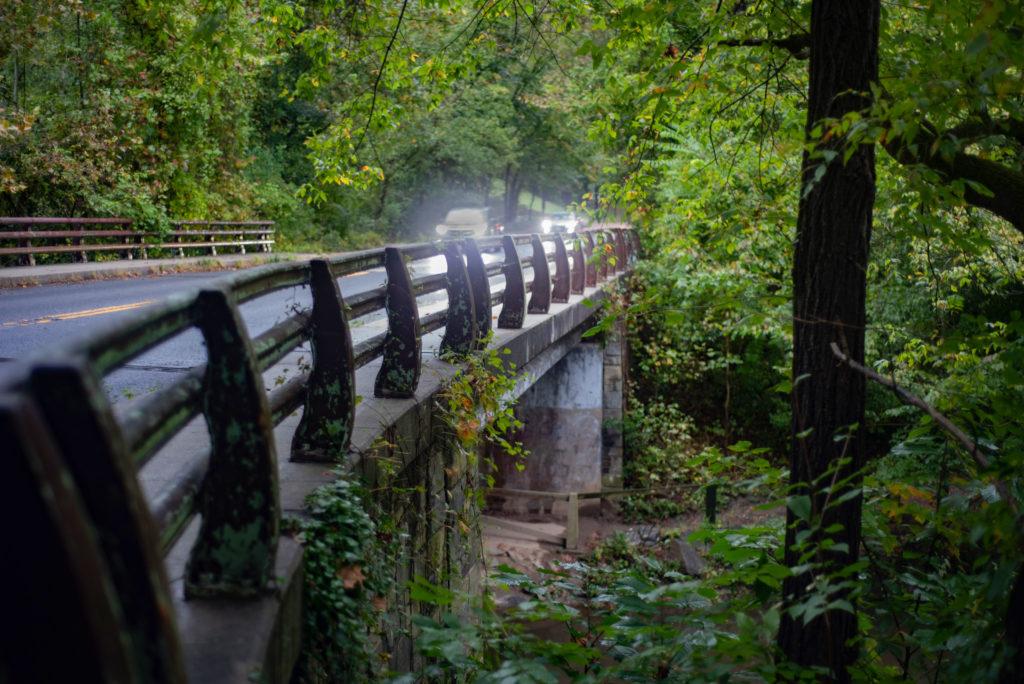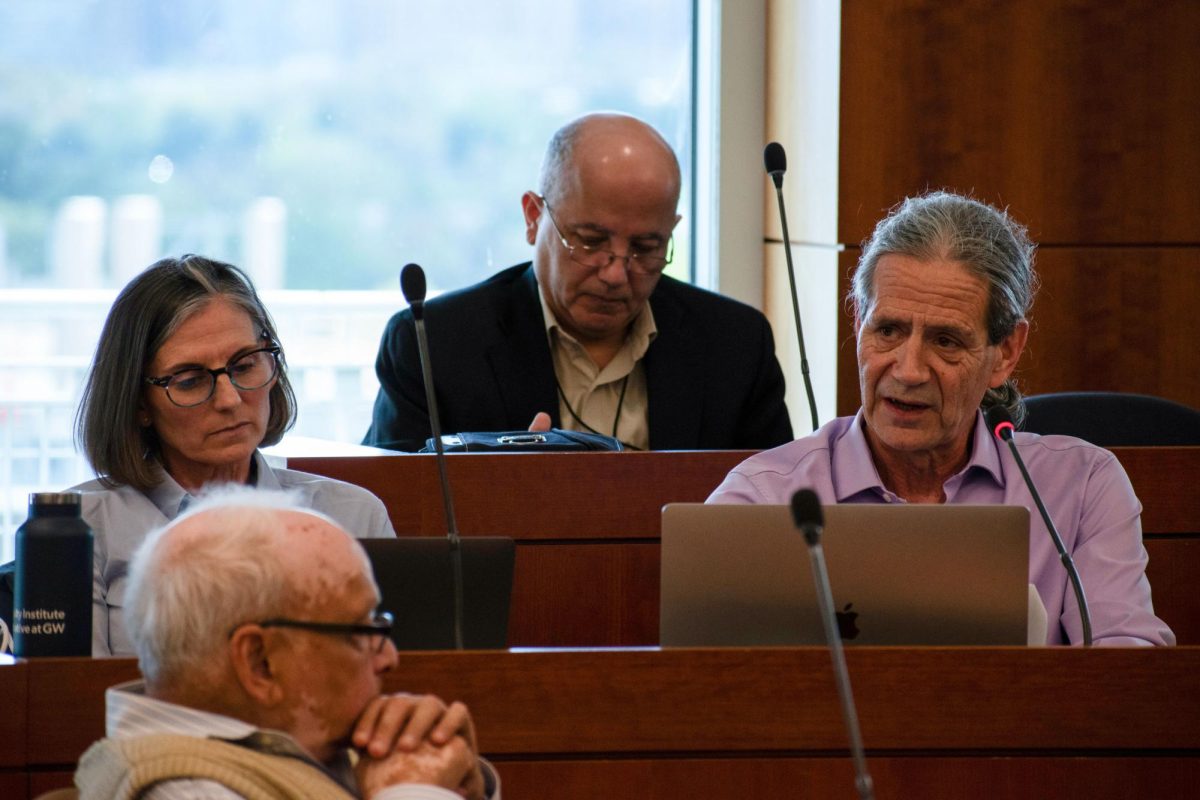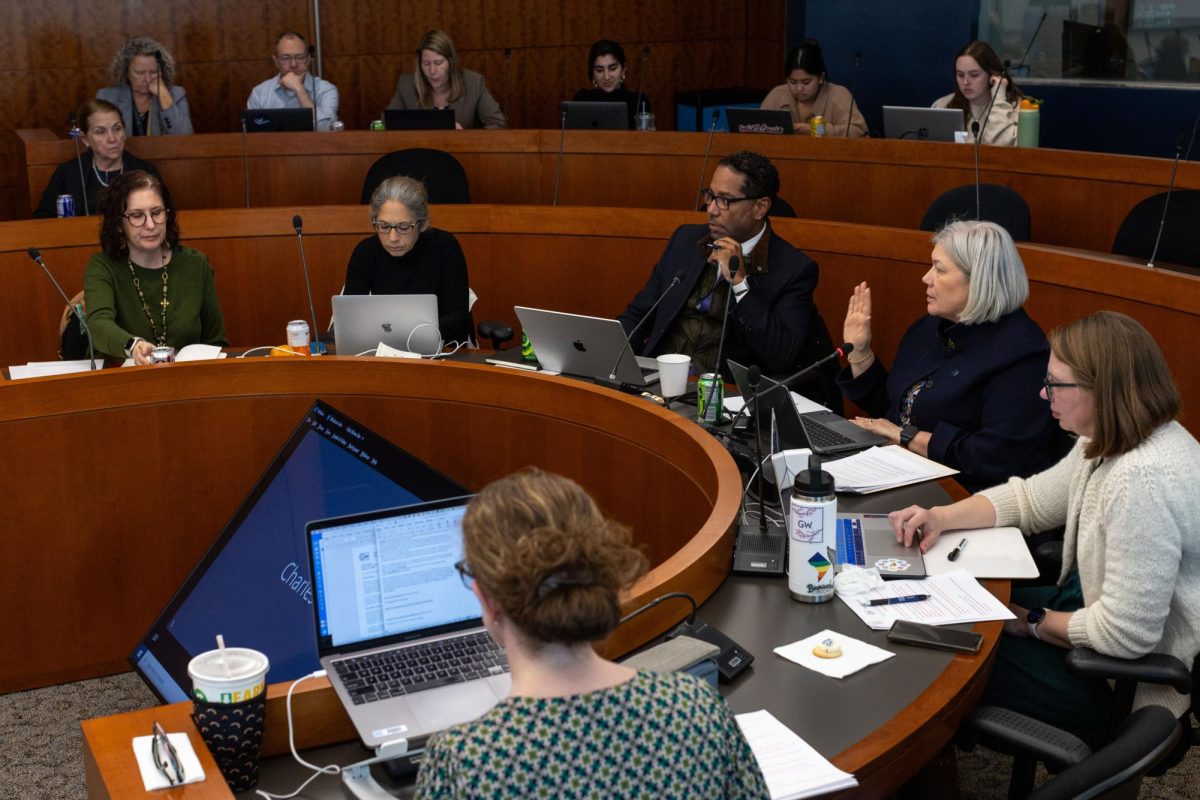National Park Service officials permanently closed more than five miles of roadway in Rock Creek Park earlier this month after local residents and faculty identified traffic as a safety threat to wildlife and pedestrians.
The northern 5.05 miles of Beach Drive, which lies between the Hawthorne and Shepherd Park neighborhoods, will be closed year-round to motorized vehicular traffic in an effort to clear space for recreational activities like walking and biking, according to an NPS release. A group of 18 faculty signed the letter in August in support of the closure, echoing the calls of 2,400 public comments on the NPS website that pushed the agency to isolate exercise space for individuals from lower socioeconomic classes and prevent traffic deaths caused by congestion and high speed vehicles on NPS land.
NPS has kept the area closed during weekdays for recreational purposes since April 2020, a pandemic lockdown allowing park visitors to use the space to bike and walk while remaining socially distanced. The agency also shut down upper Beach Drive to vehicles during the weekends in the 1960s.
The letter – signed by faculty in the Climate and Health Institute, Sumner M. Redstone Global Center for Prevention & Wellness, Milken Institute School of Public Health, Columbian College of Arts and Sciences and the School of Medicine and Health Sciences – states Rock Creek Park contains the “most abundant” green space in D.C., and park visitors should have “unrestricted” access to the upper Beach Drive area in the northern portion of the park. Access to free space to exercise can boost the health of residents of lower socioeconomic classes and can reduce the risk of chronic illnesses like type 2 diabetes, according to the letter.
“This is an inconsequential distance for cars but is a significant distance when traveling on foot,” the letter states.
In July, NPS proposed to close upper Beach Drive from Memorial Day weekend to Labor Day each year in the Upper Beach Drive Management Plan, which guides the use of upper Beach Drive and nearby roadways, opening up a virtual forum for public comments about the proposal and holding a public Zoom meeting to gather community feedback.
NPS did not return a request for comment.
The closure of upper Beach Drive will increase the amount of accessible space to visitors with disabilities, who cannot access other parts of the park without accessible pathways, according to the NPS release. The release states that upper Beach Drive has a “small” amount of traffic, but NPS will work with the District Department of Transportation to install a traffic signal to improve pedestrian safety in the areas surrounding Rock Creek Park.
NPS will create a “visitor use plan” to prevent park visitors from “cutting” through the forest like they did during the previous weekend closure of upper Beach Drive in 2020, harming plants and animal habitats, according to the release.
“Opening this section of Beach Drive to pedestrians and cyclists has provided our community with increased opportunities for healthy recreation, greater access to nature and outdoor enjoyment,” Julia Washburn, the Rock Creek Park superintendent, said in the release. “We hope to continue seeing you all on Beach Drive and ask for your help as we work to protect sensitive habitat surrounding the road.”
Liz Borkowski, a senior research scientist for the department of health policy and management in the Milken Institute School of Public Health and a signatory of the faculty letter, said the space for physical activity and fresh air in upper Beach Drive can provide public health benefits for the D.C. community. Borkowski said fewer vehicles in the area will allow more park visitors to walk and bike in Rock Creek Park.
Borkowski said the biodiverse drive is home to a variety of plants and animals, and more trees and greenery can help counter the urban heat island effect, which occurs in large cities when natural land is replaced with asphalt, buildings and concrete that absorb and retain heat. Rock Creek Park has cooler temperatures than other parts of the District, according to the National Oceanic and Atmospheric Administration.
“The letter points out spaces with a lot of trees are cooler in the summer,” Borkowski said. “So that is particularly important as we see our temperatures going up.”
Borkowski said instead of adding a bike lane to incorporate different ways for park visitors to use the road, closing upper Beach Drive to vehicles will increase safety more effectively, citing some bike lanes in D.C. that lack barriers which protect them from traffic. She said she rides an electric scooter to campus and does not feel safe in bike lanes that do not have physical barriers.
Last year, cars hit and killed two pedestrians on NPS land, according to the faculty letter. Traffic-related deaths in D.C. doubled from 2012 to 2021 with 40 recorded traffic fatalities in 2021, according to data from the Metropolitan Police Department.
Mayor Muriel Bowser rolled out Vision Zero, a plan to eliminate traffic-related deaths and serious injuries by 2024, which District officials said has “fallen short” of its goal.
“There is definitely an issue that D.C. needs to keep putting resources into and making changes to get down to their vision of having zero pedestrian deaths,” Borkowski said.
Peter LaPuma, a professor of environmental and occupational health and a signatory of the faculty letter, said the benefits of closing upper Beach Drive, like decreasing pollutants from cars, outweigh the disadvantages, like redirecting commuters who drive through upper Beach Drive.
“I think most people value green space and it will push them to try to try to save it to try to keep as much of it as we can,” LaPuma said.
LaPuma said Rock Creek Park boosts mental health for those who use it because it is a “quieter” space in the city.
“If you have cars going through there that kind of ruins the natural environment,” LaPuma said.








